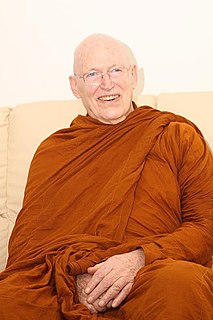A Quote by Giorgos Seferis
You spoke about things they couldn't see and so they laughed. Yet to row up the dark river against the current, to take the unknown road blindly, stubbornly, and to search for words rooted like the knotted olive tree- let them laugh. And to yearn for the other world to inhabit today's suffocating loneliness, this ravaged present- let them be.
Related Quotes
It is quite affecting to observe how much the olive tree is to the country people. Its fruit supplies them with food, medicine and light; its leaves, winter fodder for the goats and sheep; it is their shelter from the heat and its branches and roots supply them with firewood. The olive tree is the peasant's all-in-all.
To love women, to love our vaginas, to know them and touch them and be familiar with who we are and what we need. To satisfy ourselves, to teach our lovers to satisfy us, to be present in our vaginas, to speak of them out loud, to speak of their hunger and pain and loneliness and humor, to make them visible so they cannot be ravaged in the dark without great consequence, so that our center, our point, our motor, our dream, is no longer detached, mutilated, numb, broken, invisible, or ashamed.
Do you purchase the first tree you see? Of course not. You search for the right one. You walk the rows. You lift several up and set them down. You examine them from all angles until you decide, This one is perfect. You have a place in mind where the tree will sit. Not just any tree will do. God does the same.
THE FATHER: But don't you see that the whole trouble lies here? In words, words. Each one of us has within him a whole world of things, each man of us his own special world. And how can we ever come to an understanding if I put in the words I utter the sense and value of things as I see them; while you who listen to me must inevitably translate them according to the conception of things each one of you has within himself. We think we understand each other, but we never really do.
I have the right ideas, but my words are too... complicated. I need to simplify them, so that people won't get lost in the dark when they see and hear them. I want them to shine like beacons of light in a world of overly complicated darkness. One day I will find the right words, and they will be simple.
This world has seen a great many civilizations. And many of them have survived for longer periods than ours up to the present. They were all as sure as we are today of having founded the first eternal civilization. We today differ from them in having our western civilization spread to embrace the entire planet, leaving no room on any continent for any other culture to take over if we fail.
Find something you like, go into a room, close the door and read it aloud. Read it aloud. Everybody in the world who likes dance can see dance, or hear music, or see art, or admire architecture - but everybody in the world uses words who is not a recluse or mute. But the writer has to take these most common things, more common than musical notes or dance positions, a writer has to take some adverbs, and verbs and nouns and ball them up together and make them bounce.
I think that as a writer your responsibility is to search for and stir up the things that are in this world. There is violence in all of us, and beauty, and strength, and weakness. What's my job? To only write about the good and the beauty, or is it to write about all of it? That's my greater responsibility, to write about them as I see them and as they are.
Usually they are quick to discover that I cannot see or hear.... It is not training but love which impels them to break their silence about me with the thud of a tail rippling against my chair on gambols round the study, or news conveyed by expressive ear, nose, and paw. Often I yearn to give them speech, their motions are so eloquent with things they cannot say.
How can the unknown merit reverence? In other words how can you revere that of which you are ignorant? At the same time, it would be ridiculous to propose that what we know merits reverence. What we know merits any one of a number of things, but it stands to reason reverence isn't one of them. In other words, apart from the known and the unknown, what else is there?





































